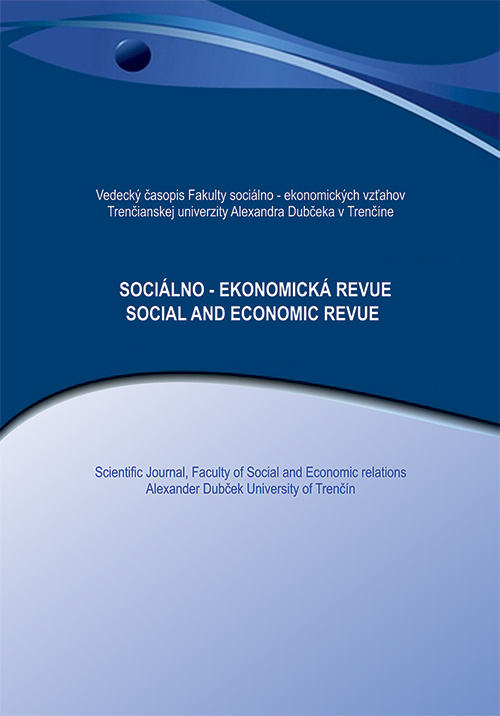IMPORTANCE OF THE MATERIALITY OF TAX OPERATIONS IN MEXICO
The tax authorities in Mexico, due to the improper use of Digital Tax Receipts over the Internet and based on the electronic tax information issued by taxpayers that generate tax evasion, establishes the scheme of Simulated Operations with two aspects, the Companies that Bill Operations Simulated and the Companies that Deduct Simulated Operations, based on article 69-B of the Fiscal Code of the Federation, in which taxpayers are required to demonstrate the materiality of the acts they carry out, that is, the reality of their fiscal operations . The objective of the investigation is to demonstrate the importance of taxpayers adequately and sufficiently documenting the materiality of their operations. Through qualitative research, it is concluded that reviews beyond accounting are necessary for the Tax Administration Service, organizations must prove the materiality of their operations with the following documents obtained from their providers: the veracity of the digital tax receipt online; investigate its administrative, operational and fiscal aspects; the physical location of the establishment; the corporate purpose; your financial capacity; the business model; compliance with your tax obligations; verification of the presumption of non-existence of operations; analysis of contracts and agreements; collection of evidence on purchase orders, orders and bids; and public documents.
Release: 2023/1 Pages: 22-28 JEL classification: E62, E69, H21, H22
DOI: https://doi.org/10.52665/ser20230103
Keywords: Issuance, Deduction, Simulated Operations
Section:
Contacts:
Saira Magaly Almeida Cambrano, Degree in Public Accounting
Universidad Juárez Autónoma de Tabasco, México
almeidacambrano@hotmail.com, https://orcid.org/0009-0005-0468-8492
Rosa María Martínez Jiménez, Dr.
Universidad Juárez Autónoma de Tabasco, México
rosimarj@hotmail.com, https://orcid.org/0000-0003-1636-7862
* Corresponding author: rosimarj@hotmail.com, phone (+52 9933111081)
Lisbeth Jacinto Castillo, Dr.
Universidad Juárez Autónoma de Tabasco, México
ljacsc62@gmail.com, https://orcid.org/0000-0002-4157-8840
Literature:
Alegre Brítez, M. (2021). Bases teóricas de la investigación cualitativa en ciencias contables. QUIPUKAMAYOC (29), 81-87. DOI:: https://dx.doi.org/10.15381/quipu.v29i60.20491
AMECE GS1 México. (s/f). Guía código de producto.
Beltrán López, M. (13 de Junio de 2020). www.mariobeltran.mx. Obtenido de https://drive.google.com/file/d/1PQ11Vj9U5CXsAa_M4w9Ogeb21OqyJwyU/view?usp=sharing
Cámara de Diputados del H. Cogreso de la Unión. (Nov. 11, 2021). Codigo Fiscal de la Federacion. Ciudad de Mexico: Diario Ofical de la Federacion 12-11-2021. Obtenido de https://www.diputados.gob.mx/LeyesBiblio/pdf/CFF.pdf
Española, R. A. (2021). Diccionario de la Lengua Española. Obtenido de https://dle.rae.es/materialidad?m=form
Facturama. (s/f). La facturación en México: de la factura de papel alCFDI. Obtenido de Facturama: https://facturama.mx/blog/facturacion-en-mexico/
Morales Aguliar, Z., & Hernàndez Caro, J. C. (2017). Evoluciòn de los Comprobantes Fiscales de Impresos a Digitales. Puebla: Benemèrita Universidad Autònoma de Puebla.
Murcia López, L., Vega Zárate, C., & Sánchez García, D. (2019). Alcance de las Operaciones Simuladas en Mexico Como un Nuevo Esquema Para la Evacion Fiscal: Un nuevo reto para el Eatado. (M. P. Márquez, Ed.) Horizontes de la Contaduria en las Ciencias Sociales(18), 9-10. doi:https://doi,org/10.25009/hccs.v0i11.9
NRA, Nuñes Rosas y Asociados. (Abril de 2021). El término «Razón de negocios» en el Código Fiscal. Obtenido de Nexia International: https://nra.com.mx/el-termino-razon-de-negocios-en-el-codigo-fiscal/
Pastor Arranz, L. (2015). Metodología de la Sociología Fiscal: Enfoque Internacional en la Investigación Socilógica. En E. González García, A. García Muñiz, & J. e. García Sansano, Mundos emergentes: cambios, conflictos y expectativas (págs. 312-319). Toledo, España: ACMS. Obtenido de https://acmspublicaciones.revistabarataria.es/wp-content/uploads/2017/05/26.Pastor.Almag_.2015.312_319.pdf
Posada Martínez, A., & Delfín Pozos, F. (2014). Factura electrónica: Una realidad en México. Horizontes de la Contaduría(1), 194-208. Obtenido de https://www.uv.mx/iic/files/2018/01/14-B051112.pdf
Tributaria, S. d. (Febrero de 2018). Servicios Fiscales Digitales en Mèxico: Evoluciòn. Ciudad de Mèxico: Amexipac. Obtenido de http://amexipac.org/assets/serviciosfiscalesdigitalesen-mexico-evolucion-2018.pdf
Westreicher, G. (20 de Agosto de 2020). Economipedia. Obtenido de https://economipedia.com/definiciones/documento.html


